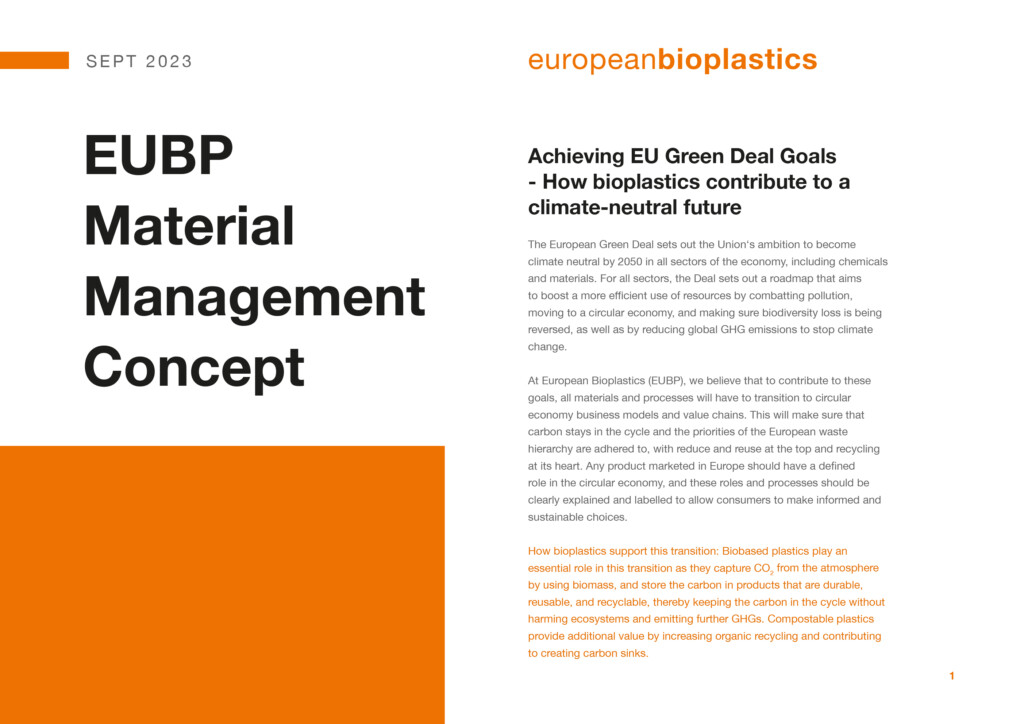Achieving EU Green Deal Goals – How bioplastics contribute to a climate-neutral future
The European Green Deal sets out the Union‘s ambition to become climate neutral by 2050 in all sectors of the economy, including chemicals and materials. For all sectors, the Deal sets out a roadmap that aims to boost a more efficient use of resources by combatting pollution, moving to a circular economy, and making sure biodiversity loss is being reversed, as well as by reducing global GHG emissions to stop climate change.
At European Bioplastics (EUBP), we believe that to contribute to these goals, all materials and processes will have to transition to circular economy business models and value chains. This will make sure that carbon stays in the cycle and the priorities of the European waste hierarchy are adhered to, with reduce and reuse at the top and recycling at its heart. Any product marketed in Europe should have a defined role in the circular economy, and these roles and processes should be clearly explained and labelled to allow consumers to make informed and sustainable choices.
How bioplastics support this transition: Biobased plastics play an essential role in this transition as they capture CO2 from the atmosphere by using biomass, and store the carbon in products that are durable, reusable, and recyclable, thereby keeping the carbon in the cycle without harming ecosystems and emitting further GHGs. Compostable plastics provide additional value by increasing organic recycling and contributing to creating carbon sinks.
